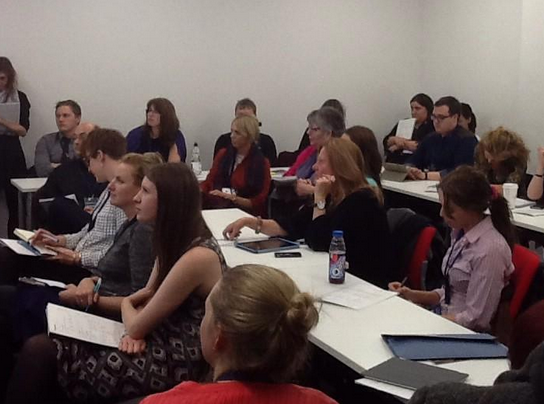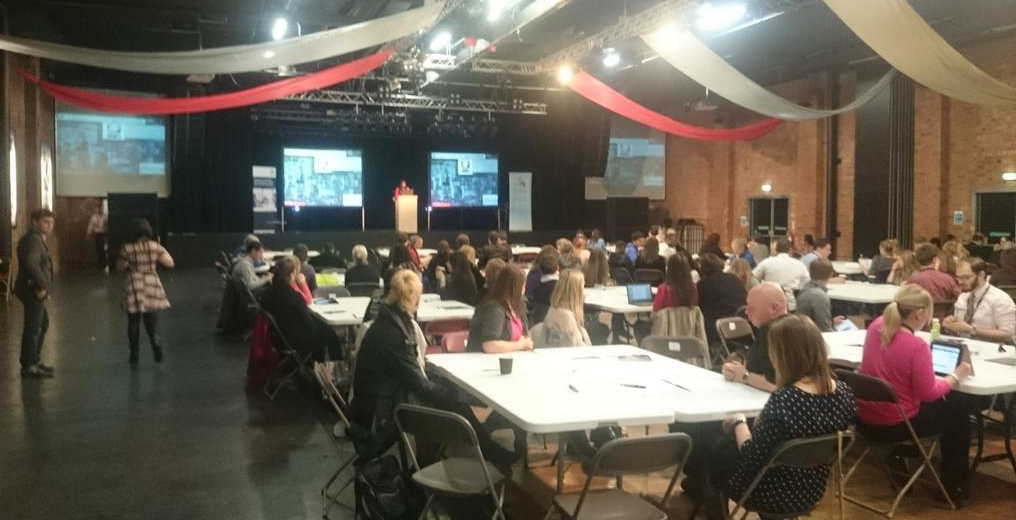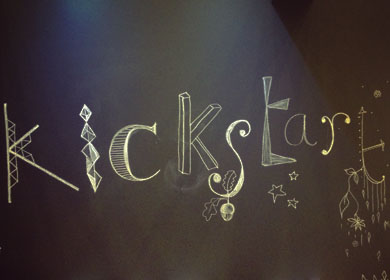On the 24th October, I attended the University of Lincoln’s KICKSTART Conference. Focusing on students as partners (or in the case of Lincoln’s nomenclature, co-producers), the conference highlighted some exciting work going on. Further to this, however, it was clear that student engagement is firmly rooted in the academic culture of the institution, from the senior levels to the students and staff ‘on the ground’.
 The first session session was run by the Psychology department, called ‘Engaging students in creating a community’. A simple statement proved to be the turning point for the department: ‘happy students make good National Student Survey scores’. The retort, positively from a member of the University Senior Team, was ‘how do you know they’re happy‘? In what is a familiar story across the University of Lincoln, the department decided this was best measured through their willingness to participate outside the classroom and here are just some of the changes they made:
The first session session was run by the Psychology department, called ‘Engaging students in creating a community’. A simple statement proved to be the turning point for the department: ‘happy students make good National Student Survey scores’. The retort, positively from a member of the University Senior Team, was ‘how do you know they’re happy‘? In what is a familiar story across the University of Lincoln, the department decided this was best measured through their willingness to participate outside the classroom and here are just some of the changes they made:
- Research participant pools: students involved in the research of staff as participants as well as co-authors of publications
- Peer and statistics mentoring: students buddy each other for pastoral/community support, or run sessions to support students who struggle when getting to grips with statistics
- Big department, small groups: students are taught in small groups as much as possible, to increase dialogue and create a sense of collegiality
- Communication: be it through student representation, the VLE or student societies, students are encouraged to maintain open dialogue with their peers and faculty
 A world cafe session was based on the 10 principles of student engagement recently published as part of ‘The Conversation’ project by The Student Engagement Partnership (5 of which particularly purtain to learning and teaching):
A world cafe session was based on the 10 principles of student engagement recently published as part of ‘The Conversation’ project by The Student Engagement Partnership (5 of which particularly purtain to learning and teaching):
-
Students are active members of a learning community
-
Students engage in setting the direction of their learning
- Students engage in curricula content, design, delivery and organisation
- Students engage in the enhancement of teaching, feedback and assessment practices
- Students engage in and with their learning
The full document, which is a really useful point to start thinking about, can be found here
The most interesting session was led by two students talking about their experiences of being engaged in projects such as consulting on teaching, shadowing the University Senior Management Team, and being peer mentors. What stood out for me was the confidence growth both students referred to. During the Q&A, I asked them to go a little further into this, and they said it was the professional experience they gained, how they could see their ‘transferable skills’ either undergo enhancement or be added to their skillsets.
A session student engagement in curriculum design focused on how students in Fine Art helped create two 60-credit super modules to balance practical and theoretical needs of dance students. Whilst the content doesn’t easily relate to City, the process of ongoing engagement with students and staff as stakeholders, the establishment of a working group to oversee the development work throughout a single academic year, and the intention to empower all involved in the module were quite inpsiring.
A panel debate, typical conference-fare even in my limited experience, featured a student, the head of Lincoln’s Educational Development and Enhancement Unit, the Director of TSEP and a Student Engagement Advisor from the QAA. The issue? “The implications for power and status in true partnership”. A quite significant conversation took place, but to summarise here were some of the take-home messages:
- Partnership between staff and students requires multiple perspectives
- Students’ Unions are central to supporting staff-student partnerships
- Higher Education is in a constant state of change at a macro and micro level, and institutions need to be mindful of this when creating a partnership
- True partnership involves change, change involves emotion, and emotion can cause offense as well as encourage investment
What I’m thinking about next is how trust between staff and students affects how we should approach partnership. Lincoln, for instance, have students on all student-facing interview panels. But whether this reflects the distrust of students and/or unions in a universities ability or composure to undertake this activity is a really interesting thing to contemplate, and 3 days on I still am.
If you want to here more about this or anything, visit the new Educational Engagement Space on LEaDs website and engage in the conversation on twitter – @cityedengage

